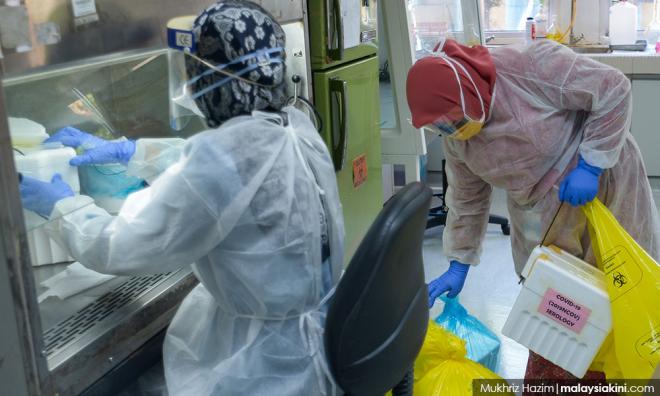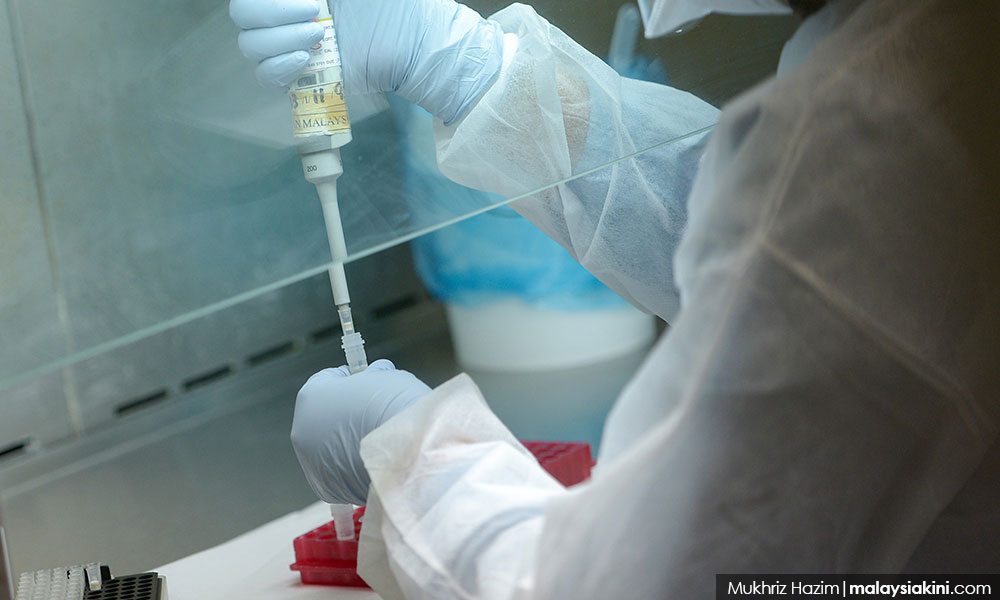
COVID-19 | Health Ministry director-general Dr Noor Hisham Abdullah has urged greater caution after a highly contagious variant of the virus that causes Covid-19 had been confirmed in two clusters in Malaysia.
In a Facebook post just past midnight this morning, the Institute of Medical Research had just identified the virus carrying the D614G mutation in samples collected from three cases from the Sivagangga cluster, and one case in the Bukit Tiram cluster.
The three in the Sivagangga cluster are close contacts of the restaurant owner Nezar Mohamed Sabur Batcha, who has been sentenced to five months’ jail and fined RM12,000 on Thursday for breaching quarantine.
The sample from Bukit Tiram, meanwhile, was collected from a foreign national involved in the cluster.
“Both these clusters are under control thanks to various public health measures that have been swiftly implemented in the field. These studies are preliminary studies, and there are several follow-up studies that are still ongoing to test several other cases including the index cases of both clusters.
“Regardless, this means the community must be on alert and be more careful because the Covid-19 virus with the D614G has been proven to be in Malaysia.
“It has been found to be ten times more likely to infect other individuals, and could spread easily if spread by ‘superspreaders’,” Noor Hisham said.
He also voiced concern that experimental vaccines currently in development may not be able to tackle the D614G variant of the virus because it is still relatively new.
Hence, he said the main method to stem the spread of the disease is to be disciplined in implementing infection prevention and control measures, such as maintaining physical distance from others, high standards of personal hygiene, and wearing face masks, especially in crowded public places.
“The Covid-19 situation is still under control and the Health Ministry and other agencies are still working to contain the spread of Covid-19.
“The cooperation of the community is vital to ensure that we can stop the spread of Covid-19 regardless of what mutations it carries,” he said.

The Sivagangga cluster was first detected on July 28 and has infected 45 people so far.
It is believed to have started when Nezar - an Indian citizen with permanent resident status in Malaysia - failed to adhere to his 14-day home quarantine order upon returning from India.
There are 45 cases linked to the cluster so far, making it the second-largest cluster that is still under the MOH’s radar. The largest is an outbreak at the Bukit Jalil Immigration Detention Centre that has infected 653 people.
The Bukit Tiram cluster was first reported on July 25 and has infected 10 people so far. It is linked to religious activities in several states.
During a press conference on Aug 6, Noor Hisham had floated the possibility that the virus involved in the Sivagangga cluster may have been a “superspreader” carrying the D614G mutation, and research was underway to determine whether this was the case.
This is because the cluster had spread much faster than other clusters in Malaysia. - Mkini


No comments:
Post a Comment
Note: Only a member of this blog may post a comment.